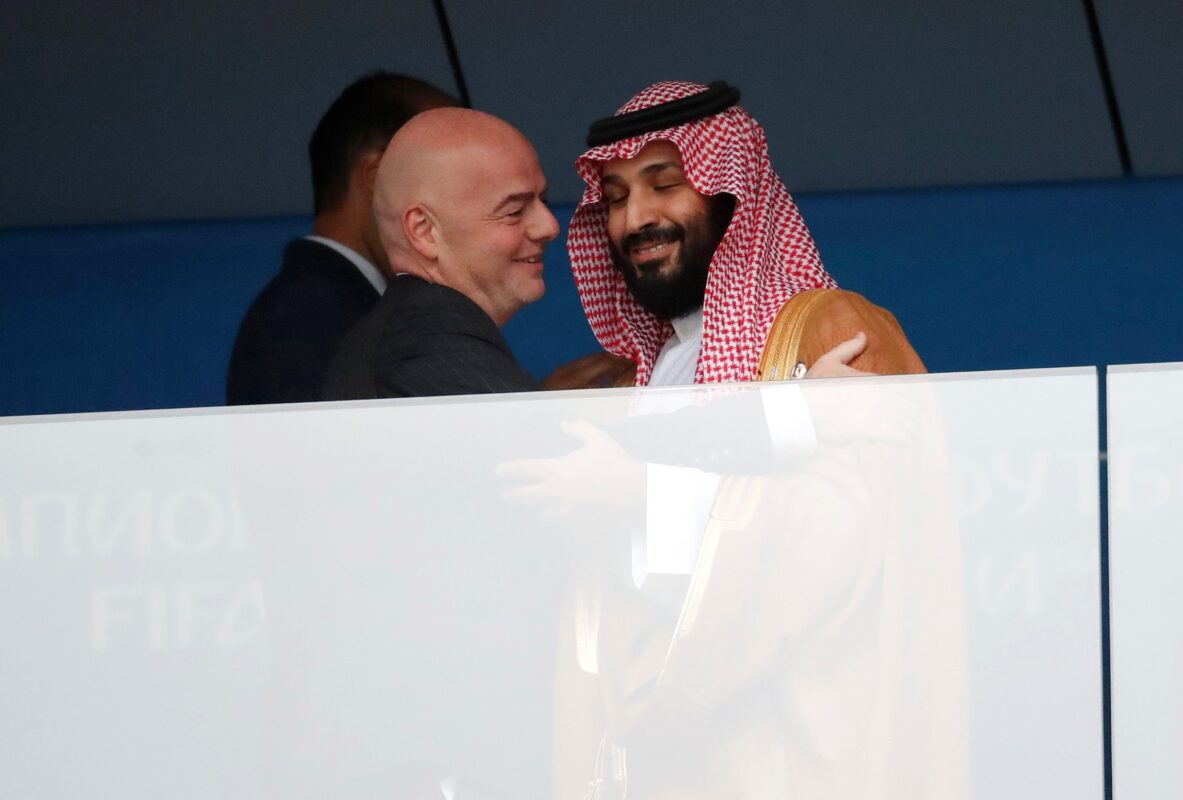Aramco, a leading energy and chemicals Saudi public company, has signed a four-year global partnership with the International Association Football Federation (FIFA). The company will become FIFA’s Major Worldwide Partner exclusive in the energy category, with sponsorship rights for multiple events including the highly anticipated FIFA World Cup 26 and FIFA Women’s World Cup 2027.
The agreement, which runs until the end of 2027, fits Saudi Arabia’s strategy of sportwashing to hide human rights abuses. Indeed, the policy, initiated by Crown Prince Mohammed bin Salman since his accession to power in 2017, is primarily designed to “sportswash” Saudi Arabia’s reputation, hosting major sporting events that attract widespread positive media attention to divert it away from the hosts’ abuses. By providing the worldwide population extensive possibilities of distractions, it becomes easier to forget reiterated human rights violations in the country. In this way, the world can be made to neglect the murder of Jamal Khashoggi, the fierce repression of Saudi independent journalists, the poor women’s rights in the kingdom and ignore the mass killings of migrants along the Saudi border with Yemen.
Having already secured sponsorship rights for the 2026 Men’s World Cup and the Women’s World Cup the following year, the Saudi government may soon secure the rights to host the 2034 men’s football World Cup and – gallingly, considering the country’s treatment of women – as it is bidding for the 2035 women’s World Cup too. Recently, Manahel al-Otaibi, a 29-year-old fitness instructor and women’s rights activist, has been sentenced to 11 years in prison by Saudi’s authorities because of her choice of clothing and support for women’s rights.
One of most worrying consequences is probably the fact that giving a positive image to governments with abysmal human rights records obscures the struggle of those whose rights are being violated and of the activists and NGOs that are trying to raise awareness about what is going on in these countries.
In April 2016, FIFA adopted the United Nations Guiding Principles on Business and Human Rights and revised its own Statutes to include its responsibility to respect human rights in article 3 of the FIFA governing Statutes (non-discrimination was already long enshrined in article 4). Even if, in June 2017, FIFA adopted and published its Human Rights Policy stating that human rights commitments are binding on all FIFA bodies and officials, the Federation seems to ignore its commitments. In particular, FIFA is obliged to integrate human rights requirements into bidding processes for competitions and as a factor in the subsequent selection of the hosts.
For this reason, Americans for Democracy and Human Rights in Bahrain (ADHRB) urges Saudi Arabia to enact human rights reforms and to comply with the international standards setted by international treaties. Also we require the FIFA to apply clear, objective human rights criteria to all states for hosting sports competitions. Although FIFA has not contributed to adverse human rights impacts, the action of the Saudi government is effective because the sports federations allow it : the FIFA disregards Saudi Arabia’s atrocious human rights record, attracted by the billions of dollars that Saudi Arabia invests to cover it.





